Working for someone does often mean “doing things their way,” which is all well and good until you end up working under someone who has more ego than common sense. So sometimes the only way to show them the error of their ways is to just do what they ask and let the consequences happen.
A worker shared their best example of malicious compliance after their boss made a new rule that he had to be informed after an employee was done with a client. The result? Way too much wasted time. We reached out to the person who made the post via private message and will update the article when they get back to us.
Some managers insist on rules that don’t make any sense

Image credits: freestocks / Unsplash (not the actual photo)
So one worker decided to just do what they were told, even if it meant not working for hours

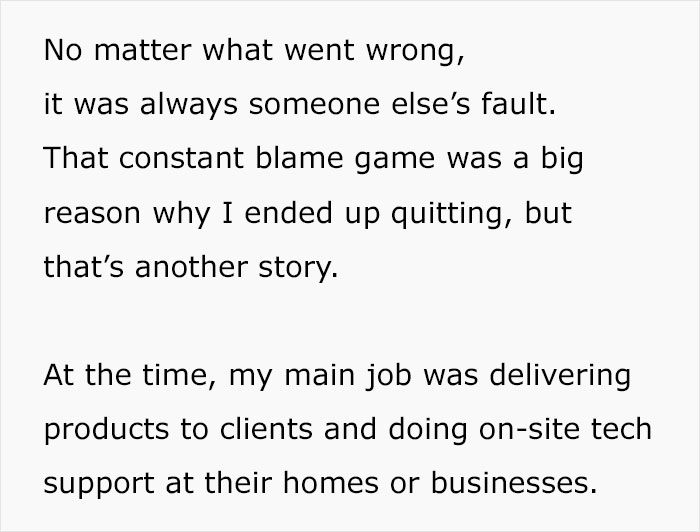

Image credits: Alena Darmel / Pexel (not the actual photo)
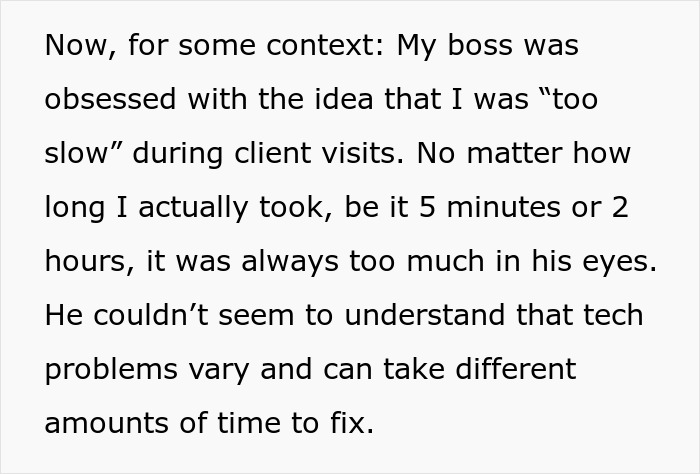
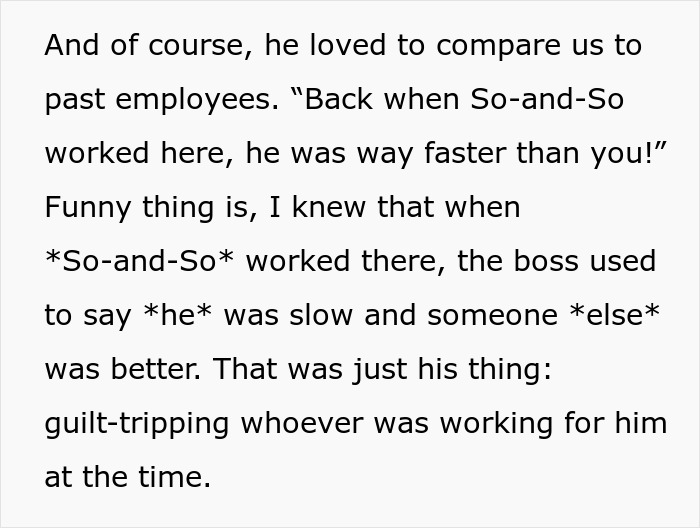
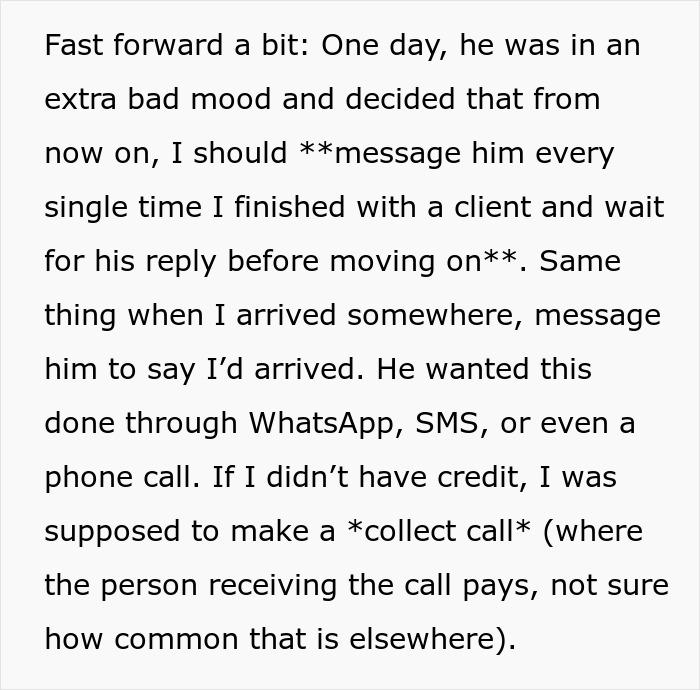
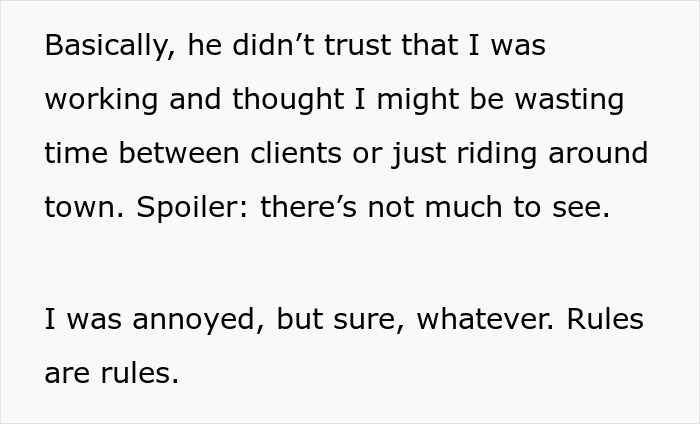

Image credits: Thomas Lefebvre / Unsplash (not the actual photo)
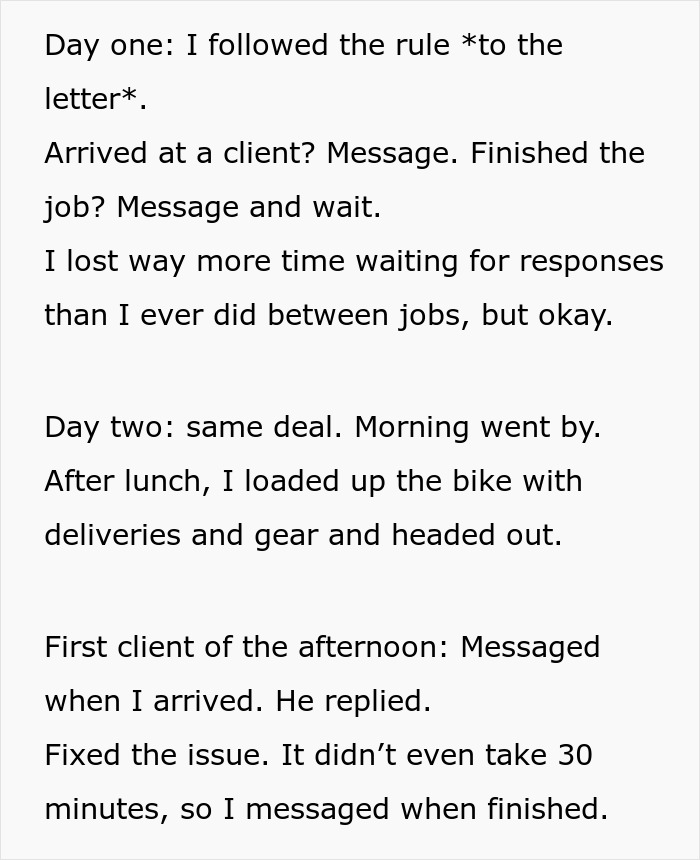
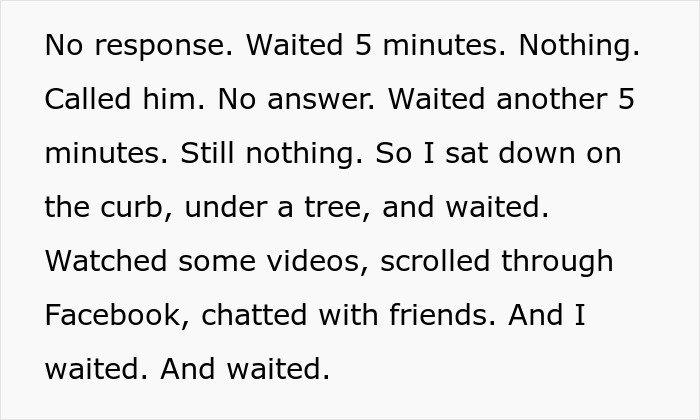
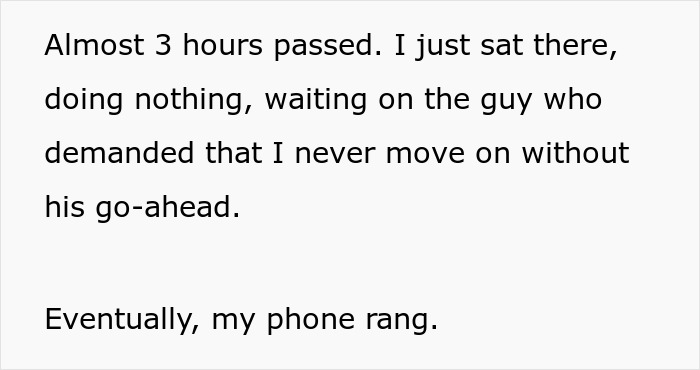

Image credits: Getty Images / Unsplash (not the actual photo)

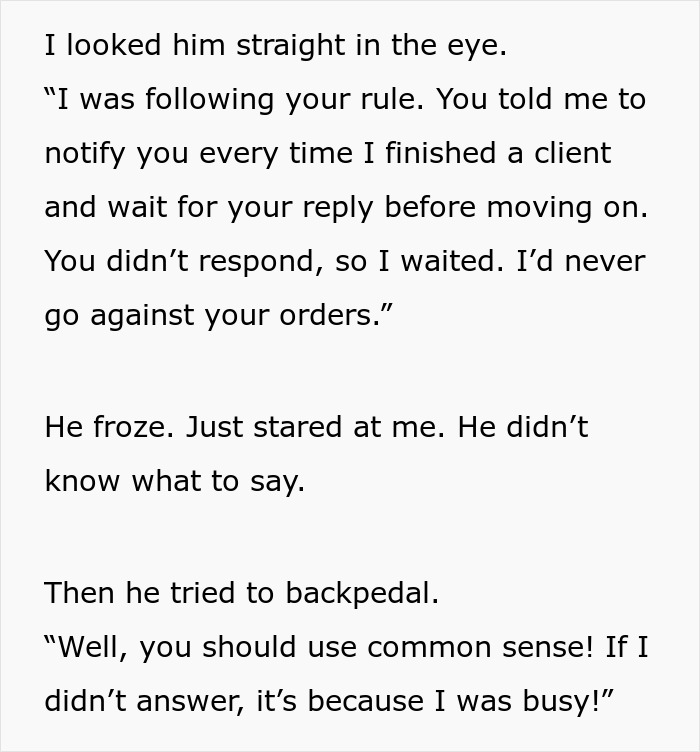
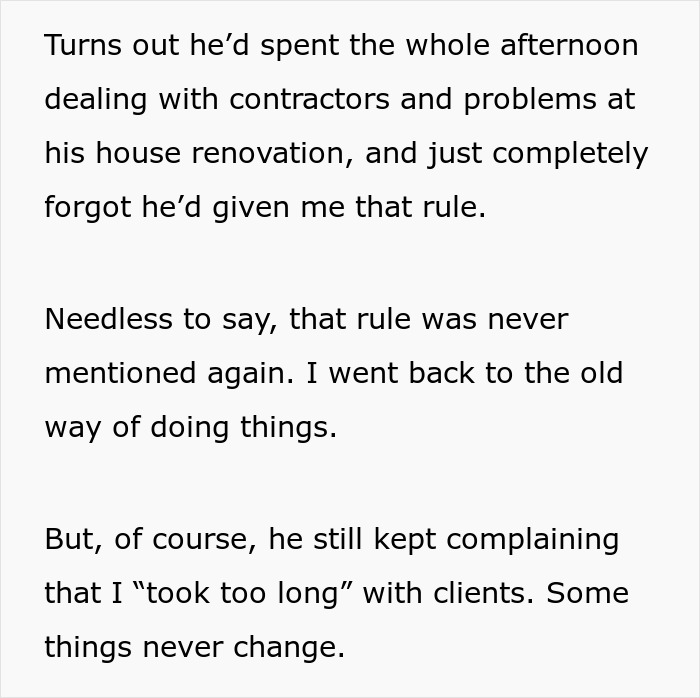
Image credits: Geehzin
People in charge love to make rules
Bosses and managers sometimes create rules that appear downright confused, or worse, self-defeating, when finally put into practice. These rules can originate from a benevolent place of intent to create order or avert problems, but the gap between intention and real effect can be wide. One of the reasons this happens is that leaders prefer to work at some distance from the day-to-day activity of their teams. They may make decisions based on incidents, meetings, or reports, rather than direct experience. As a result, a rule enacted to address a perceived issue may seem unnecessary, or even inhibiting, to the individuals actually performing the work.
Another driving factor is fear of risk. If one policy was ever misused, for example, taking long breaks or stretching out hours, a rule can be instituted so it can never occur again, even if it is inconvenient for the 99% of employees who were doing the right thing. This “worse-case scenario rule” can spiral out of control and morph into an excessive system where everyone is punished for the bad actions of a few. It’s an overcorrection in the form where trust is secondary to control.
And then, of course, there’s optics. Occasionally a manager introduces a new policy not because it will be helpful, but because it *looks* like they’re doing something. In environments where image and responsibility are important, like following a public gaffe or internal review, senior managers might feel forced to prove they’re “doing something.” All too frequently, the most visible and fastest form of “something” is the newly minted policy or regulation, even if it treats the symptom rather than the disease. Some leaders also feel they need to show just how much “power” they have, even when it’s detrimental to everyone.

Image credits: volodymyr-t / freepik (not the actual photo)
But rules without a tad of common sense end up making a job harder
Hierarchy only makes it worse. Lower-level workers might see the flagrant flaws in a policy, but top management doesn’t always get honest feedback. Often, even when people do try to complain, their concerns are stifled as recalcitrant or unhelpful. In organizations where communication travels upward badly, poorly conceived policies remain far too long.
And lastly, there is tradition. Certain rules stick around simply because they always have passed along from manager to manager with no thought. No one even recalls, eventually, why the rule was instituted to begin with, it just sort of disappears into the background noise of the job. To question it is to make waves. We can all see the benefits of clear rules that are applied equally. Without them, at best there is chaos, at worst, downright favoritism and arbitrary decisions. But rules for the sake of more rules is just a stepping stone towards making everyone unhappy.
None of this says managers are out to make things hard, most want their staff to succeed. But it takes work, listening, and humility to know when a well-meaning rule is doing more harm than good. Great leaders are those who are willing to admit when a rule needs to be re-written, or tossed entirely, and listen to the folks most impacted.
Readers thought the employee did exactly the right thing
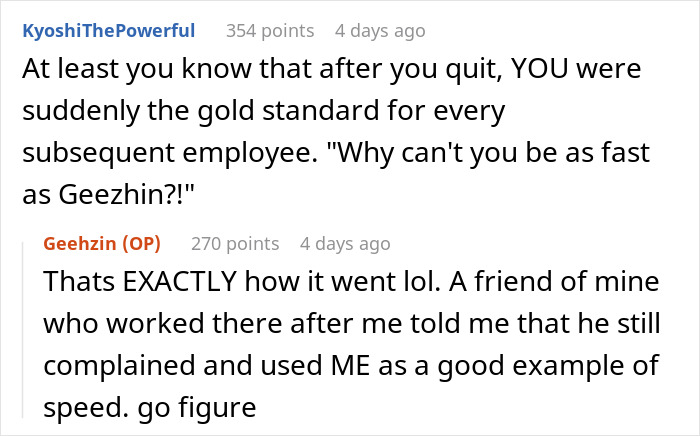
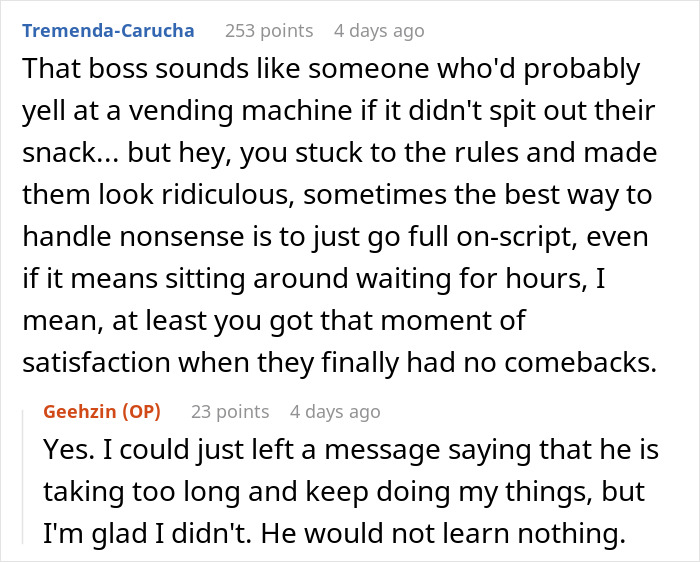
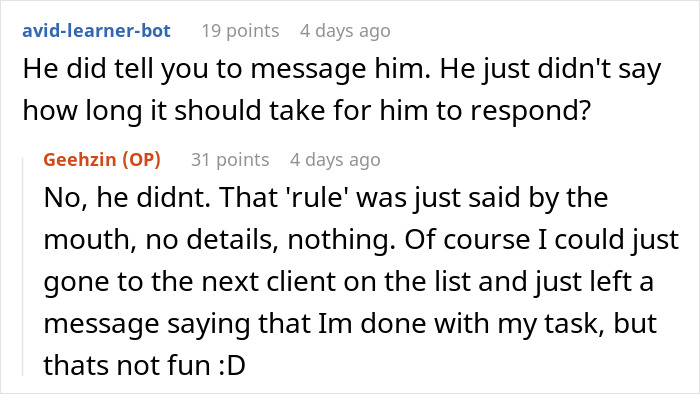




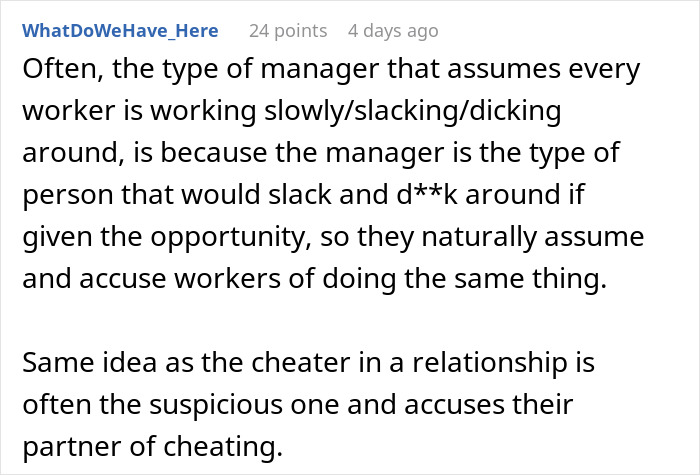

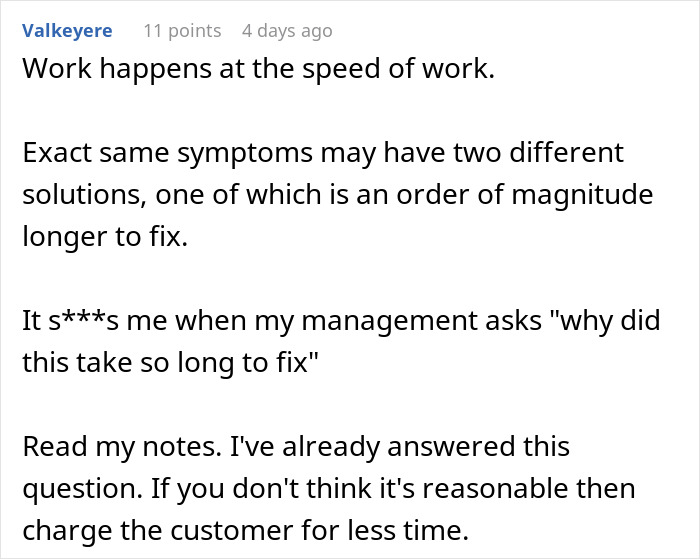

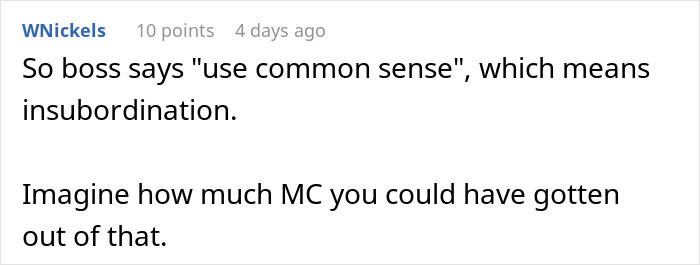







Others shared similar stories
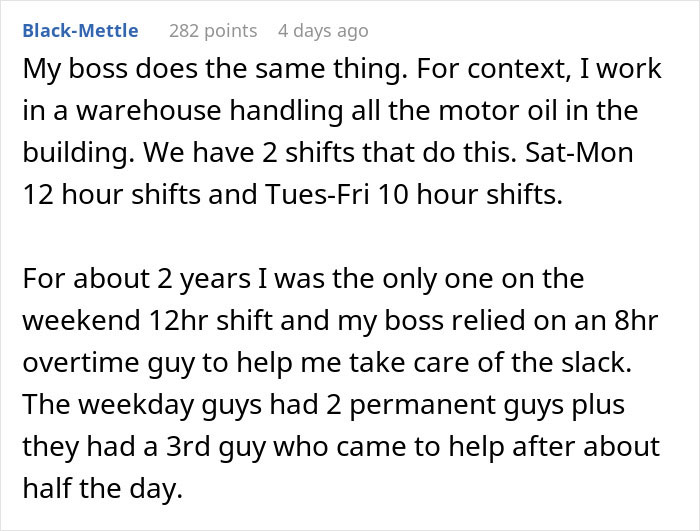
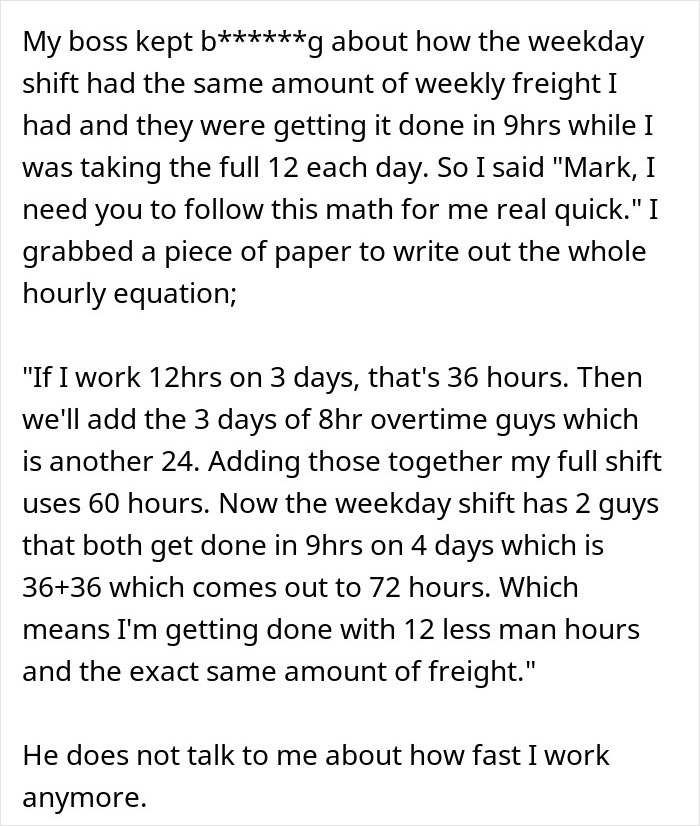

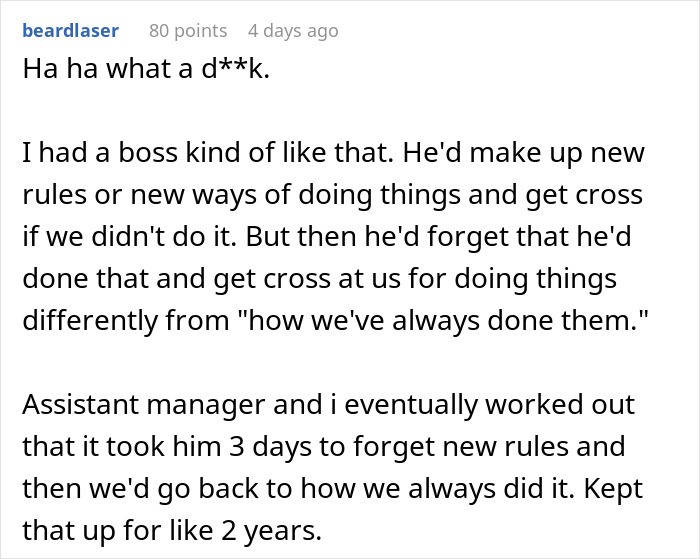


from Bored Panda https://ift.tt/dY1mI0N
via IFTTT source site : boredpanda